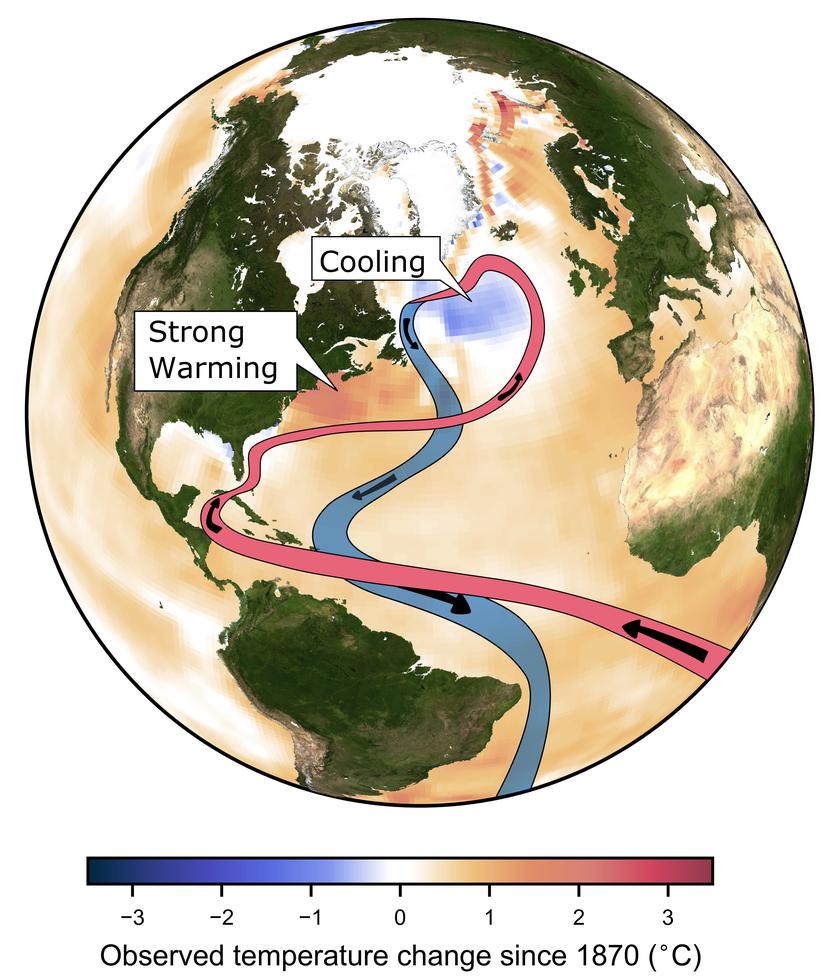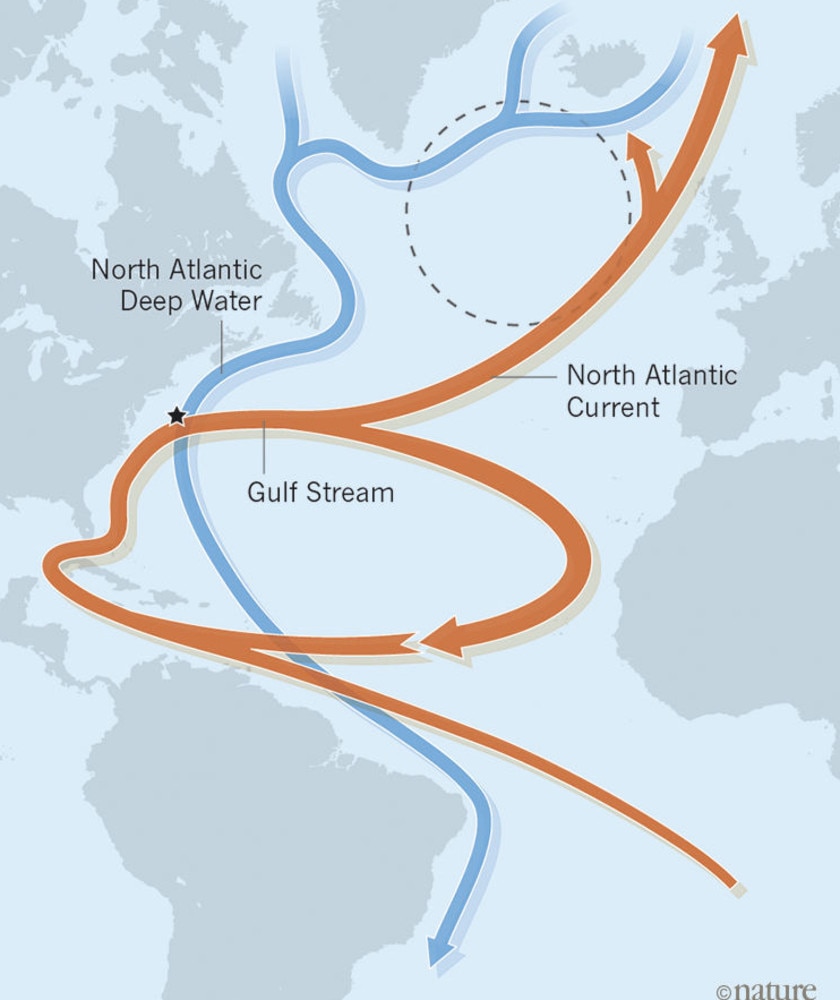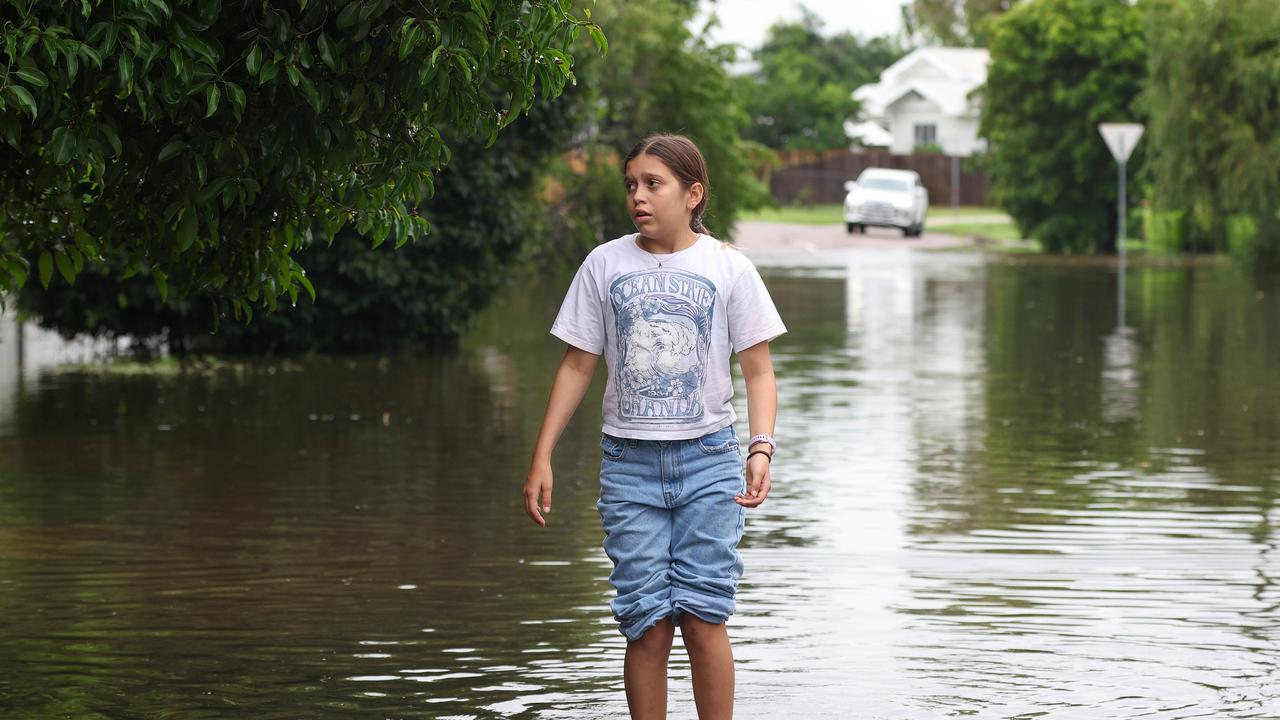‘This is uncharted territory’: Key ocean circulation is weakening
SCIENTISTS have sounded the alarm over the strange behaviour of a vital ocean conveyor belt saying we’re entering dangerous and “uncharted territory”.

A POTENTIALLY catastrophic shutdown of an important current circulation in the Atlantic Ocean could plunge the world into climate chaos, scientists have warned.
Known as the Atlantic meridional overturning circulation, or AMOC, it plays a crucial role in Earth’s climate and redistribution of heat. The circulation is vital to heat exchange between the ocean and the atmosphere and the varying strength of the system is thought to have a major impact on the global climate.
Scientists sounded the alarm this week claiming the Atlantic’s flow has plunged to its weakest level on record, dropping in strength by 15 per cent since the mid-20th century.
In a report published in the journal Nature, researchers said the system was at its weakest in 1600 years, weakened partly by climate change and was heading for a dangerous “tipping point”.
According to the authors of the study, the key conveyor belt has been implicated widely in some of the most remarkable and abrupt climate changes of the past.
Warm salty water moves north from the tropics along the Gulf Stream off the US East Coast to the North Atlantic, where it cools, sinks and heads south. The faster it moves, the more water is turned over from warm surface to cool depths.
“This overturning circulation redistributes heat on our planet,” said study lead author Levke Caesar, a physicist at the Potsdam Institute. “It brings heat from the tropics to the high latitudes.”

Previous papers have noted the unusually subdued state of the circulation but differed on the details of how and when the AMOC’s decline commenced.
The latest study — and another one published in the same issue of Nature by a different team — indicate that the Atlantic’s circulation is the weakest it’s been in about 1600 years. And the slowdown is intensifying.
The slowdown raises the prospect of a complete circulation shutdown, which would be a dangerous “tipping point,” the study said. The authors said a collapse was at least decades away but it would be a catastrophe.
Such a shutdown was the premise of the scientifically inaccurate 2004 disaster movie The Day After Tomorrow which saw New York City flooded and hit by a new ice age.
“We know somewhere out there is a tipping point where this current system is likely to break down,” said study co-author Stefan Rahmstorf, a climate scientist at the Potsdam Institute for Climate Impact Research in Germany.
“We still don’t know how far away or close to this tipping point we might be. ... This is uncharted territory.”
The weakness of the circulation is thought to be the result of melting sea ice, glaciers, and ice-shelves gushing freshwater — which is less dense than salty ocean water — into the North Atlantic.
The study which reported the slowdown has validated a long-held scientific suspicion.
The slowdown had been predicted by computer models but researchers now say it can be observed.
— AP




